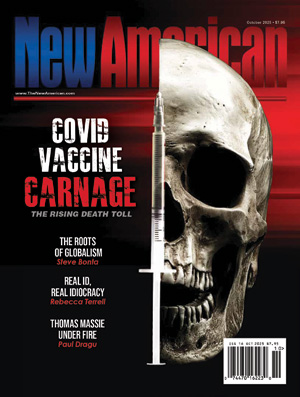Now that ObamaCare has been enacted, we definitely won’t be knocking any new archways through the wall at our Pittsburgh restaurant and expanding into the empty storefront next door.
With a waiting line on weekends, we could use the additional seats. The adjacent space could also be turned into a party room with seating for 50, perfect for communions, business meetings, and showers.
But there will be no sawing and hammering or reducing the neighborhood’s unemployment rate because we already have 42 employees — and it’s at 50 workers that the hefty new fines, mandates, and penalties kick in under ObamaCare
As the National Federation of Independent Business explains: "Businesses with 50 or more workers will now have to pay a penalty of $2,000 per worker if they do not offer healthcare coverage and have workers who access the exchanges. This penalty has nothing to do with affordability and everything to do with punishing businesses for something the government has decided businesses should be forced to provide. Worse, with new mandates like these, what incentive is there for a firm to grow any bigger than 49 employees when it means employers may face such stiff fines? This approach is the exact opposite of a recipe for incentivizing job growth.”
In our case, we already offer a health insurance program to our current employees. I don’t know if that program meets the requirements of ObamaCare, or if it will meet the requirements of future upgrades that might be mandated by politicians who enjoy playing Santa Claus with other people’s money. But none of that matters if we forget about expansion and stay under 50 workers.
I also don’t know if the workers in the added space could generate enough revenue to provide the level of health coverage for themselves that ObamaCare demands. The average profit in the U.S. restaurant industry on $1 million in sales is $47,000 — so even if we did an extra million dollars in annual sales in the new room, it’s unlikely that there’d be enough new revenue to provide full healthcare coverage for the additional staff.
In the above scenario, what we get from the government for our additional risk-taking, investing, expansion, and job creation is more bureaucratic interference, higher levels of regulation, and a good chance of being fined.
Our reward, more specifically, for creating 12 new jobs might well turn out to be a fine of $2,000 for each of 54 employees, or $108,000, if we don’t jump well enough through all the new hoops that the central planners in D.C. come up with for firms with 50 employees or more.
The spin on the White House’s website paints a different picture, one that’s simultaneously simple and false. Under the "I am a small business owner" and "Find out what health insurance reform would mean for you" sections, there’s this question and answer: "Question: Will I be required to provide coverage that I can’t afford? The President’s answer: No."
It’s like going to the website of Kim Jong Il.
It shouldn’t be surprising that Barack Obama, House Speaker Nancy Pelosi, and Senate Majority Leader Harry Reid, none of whom ever ran anything in the private sector as complicated as a good lemonade stand, would come up with a top-down plan during a recession that delivers penalties for job creation.
Obama might say that his priority is “jobs, jobs, jobs,” but what he’s largely delivered is an anti-business, anti-jobs climate of uncertainty and the statist idea that job creation is defined as 10 guys standing around a pothole instead of six. As Investor’s Business Daily reports: “Since the start of last year, the federal government added 81,000 jobs. By contrast, private-sector payrolls have shed 4.71 million.”
Over the past decade, small businesses created three-quarters of the nation’s net new jobs. They do that the best when they’re not tied up in red tape or drained of capital via excessive taxation, fines, and political intrusions.
Obama’s call for the unionization of these small firms via card check represents a clear attack on the nation’s most successful job creators and a fundamental disrespect for the very essence of the nation’s independent businesses. “Independent” means that we didn’t go into business to please politicians or to meet with grievance chairs the first thing in the morning.
The death tax, additionally, returns next year with only a $1 million exemption and a full 55 percent rate of confiscating assets, creating further disincentives to growth. Why knock through the dining room wall if the IRS is just going to increase the business value by $1 million and come after my kids at the funeral for $550,000?
Rep. Henry Waxman, seemingly unable to tolerate this kind of talk, wants to haul CEOs into hearings to defend their public comments regarding the price of ObamaCare to their firms. Maybe he should call me in too, because I’m saying that ObamaCare killed a dozen or so jobs that I could easily have created and that Obama and Waxman can multiply that by the millions of small business firms in order to get some idea of the real price of their flawed healthcare reform.
Ralph R. Reiland is an associate professor of economics at Robert Morris University and a Pittsburgh restaurateur.




